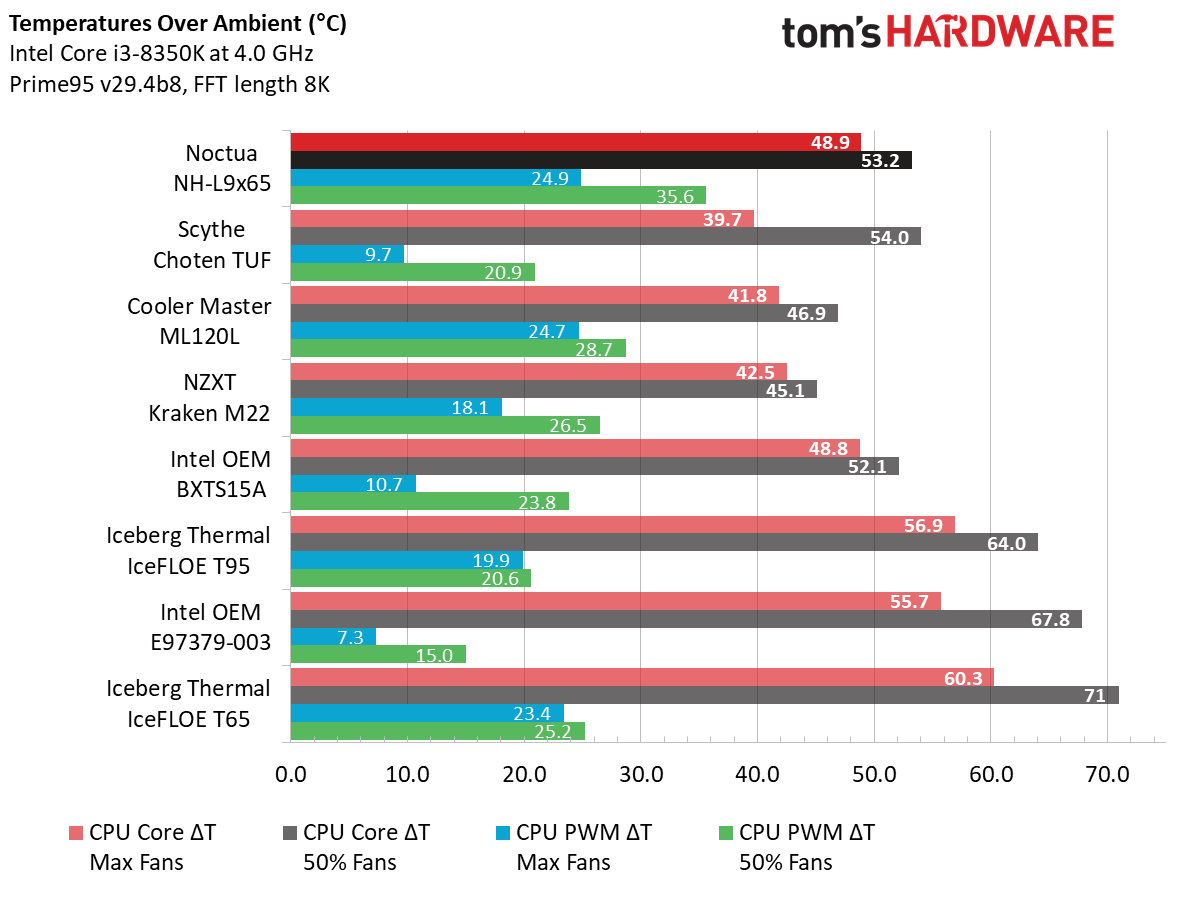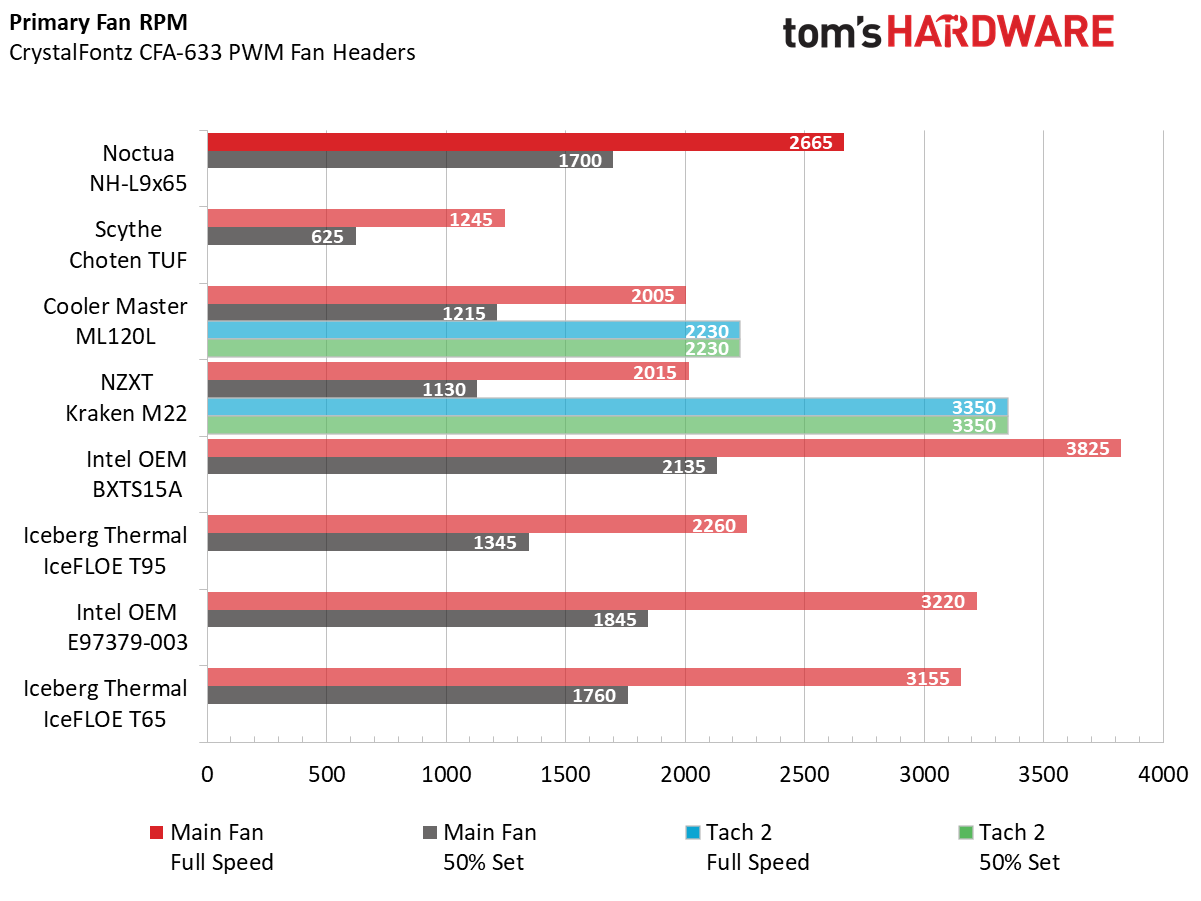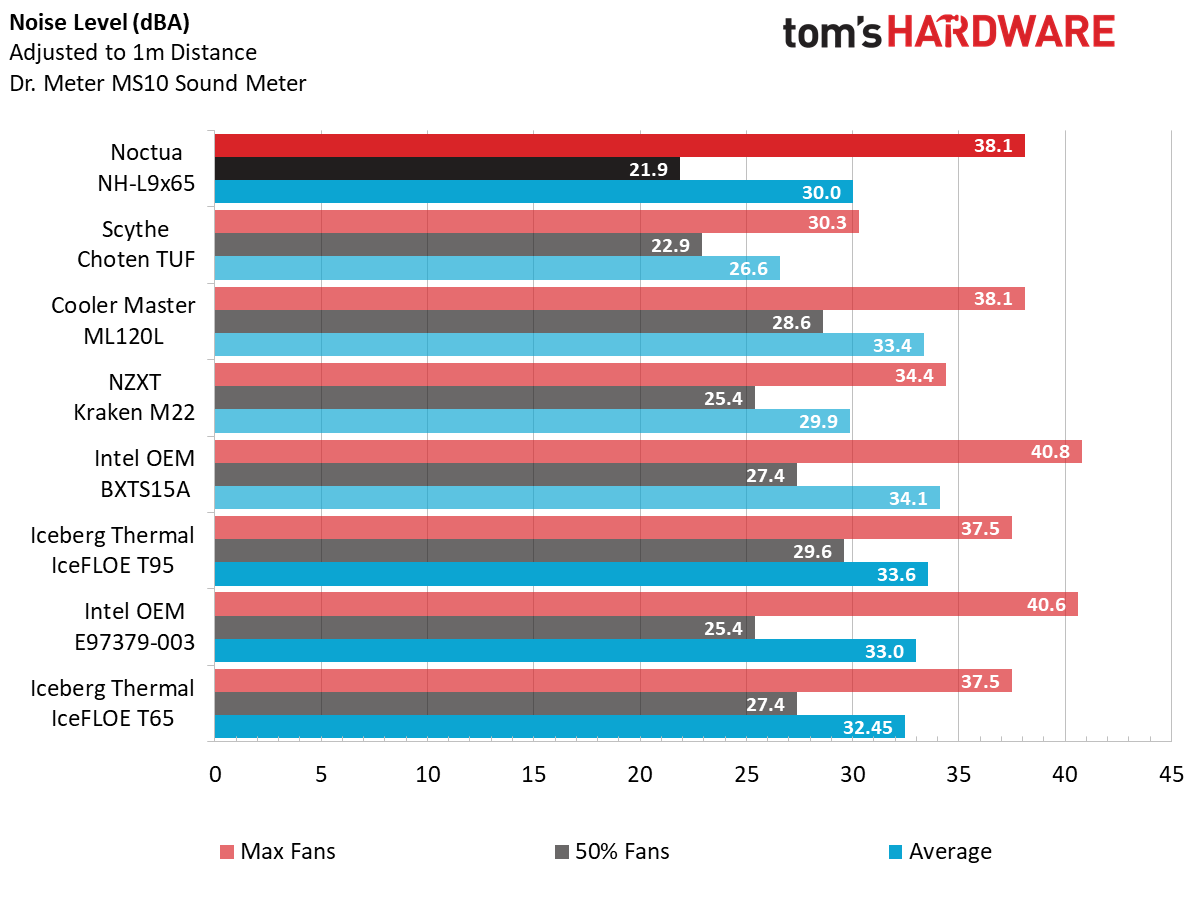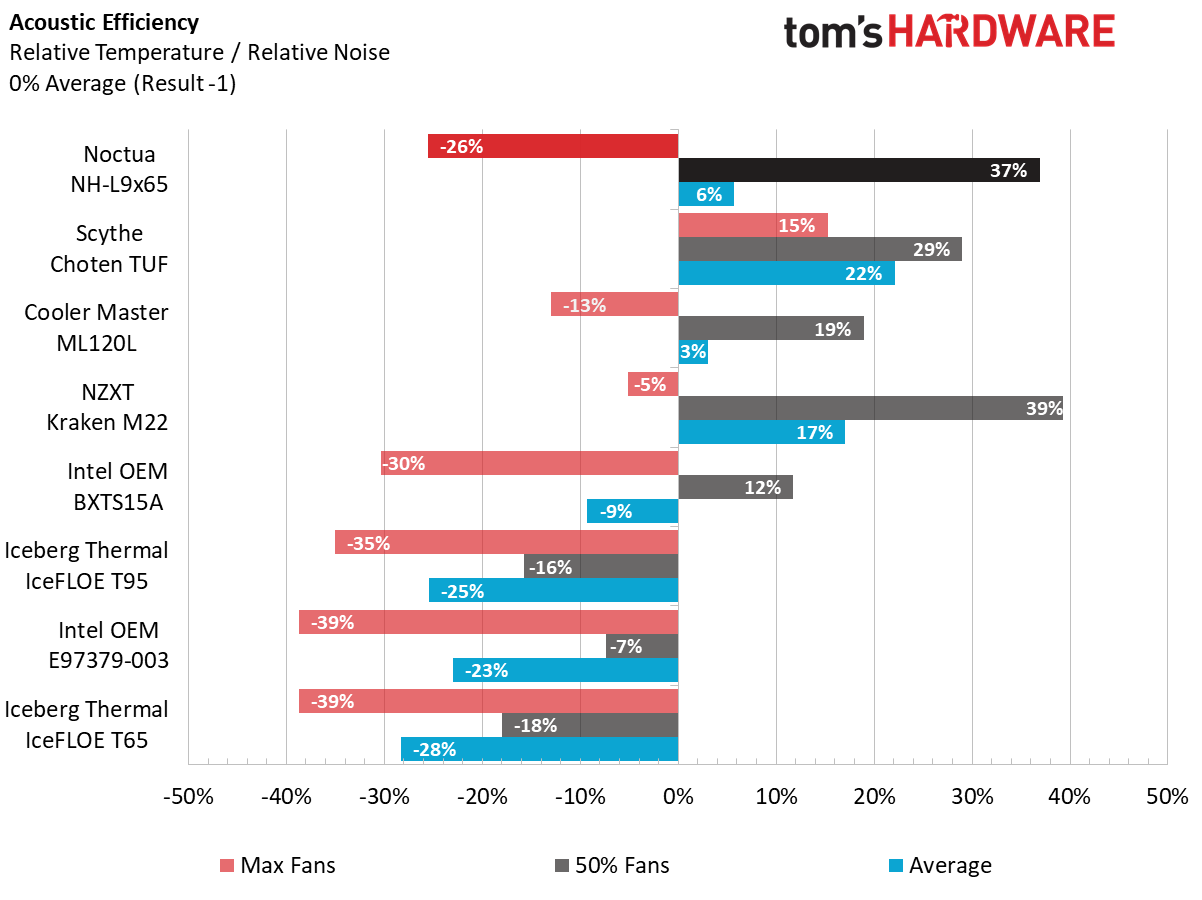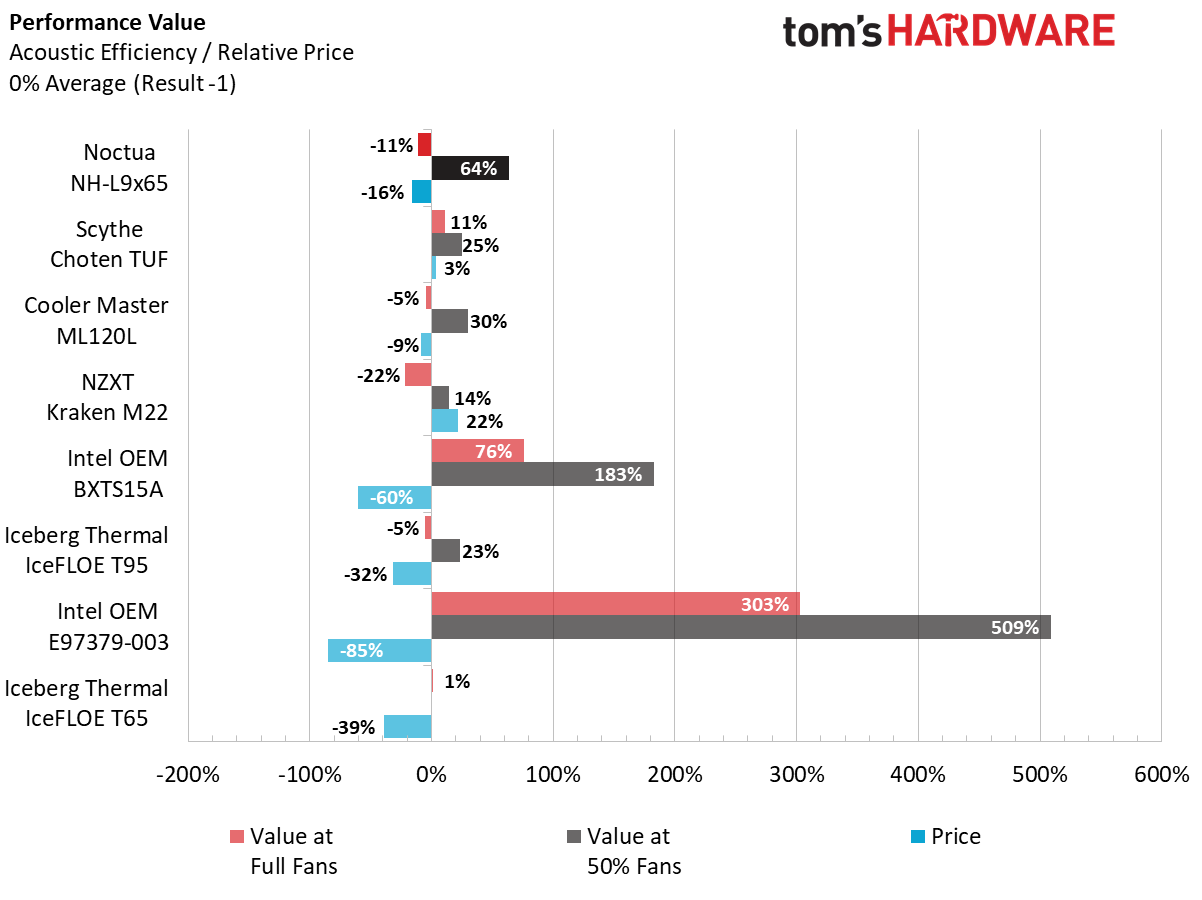Why you can trust Tom's Hardware
Thermal performance sees the Noctua NH-L9x65 sitting with some of the heavy hitters of our testing group, including both 120mm AIOs in the Cooler Master ML120L and NXZT Kraken M22 as well as the large downdraft Scythe Choten TUF. However, it compares very closely to the desktop Intel BXTS15A, which is designed for higher-end OEM Intel CPU applications, including i5 and i7 processors at stock speeds.
The performance gap widens as we move down toward the traditional OEM coolers and OEM replacements.
Most compact coolers feature smaller fans with higher RPM ratings. In the world of small cooling, 120mm fans are some of the largest used for this form factor.
Small fans rotate very quickly, often meaning higher relative noise levels. This is strikingly apparent on our list of small coolers and their rapidly rotating blades.
Evaluating noise level against the capacity of a cooler to expel thermal loads gives us an indication of how to determine how effective a device can be in the process of doing the work it is designed to do. Coolers that exhibit advantages by excelling at thermal load dissipation or operating at lower decibel levels can shift the overall capability of a cooler compared to those which might not.
Making use of our acoustic efficiency and unit pricing gives us an indication of how each aligns in terms of performance value. Priced at $55, the Noctua NH-L9x65 provides relatively good performance value at 50% fan PWM, but we see some very large spikes from budget budget-friendly Intel coolers, as they are marketed as OEM products.
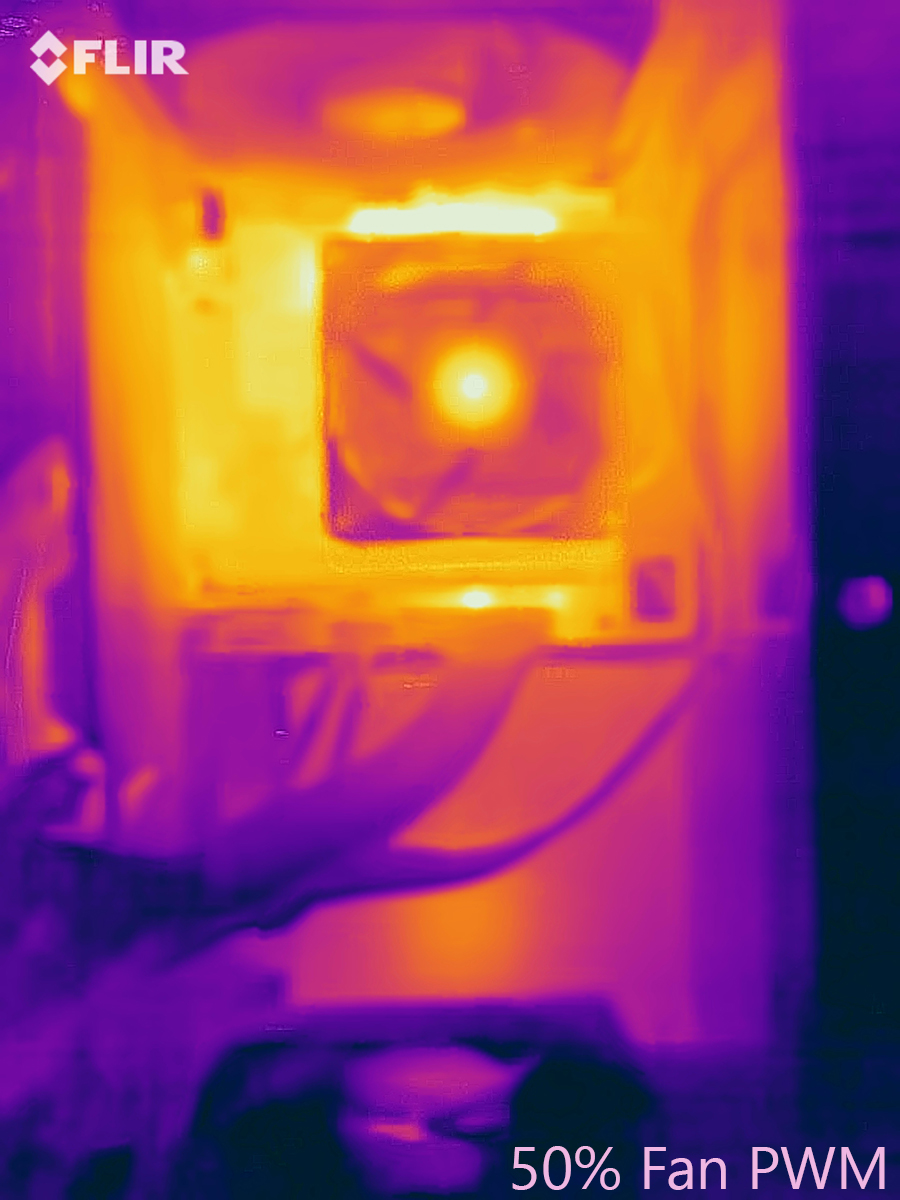
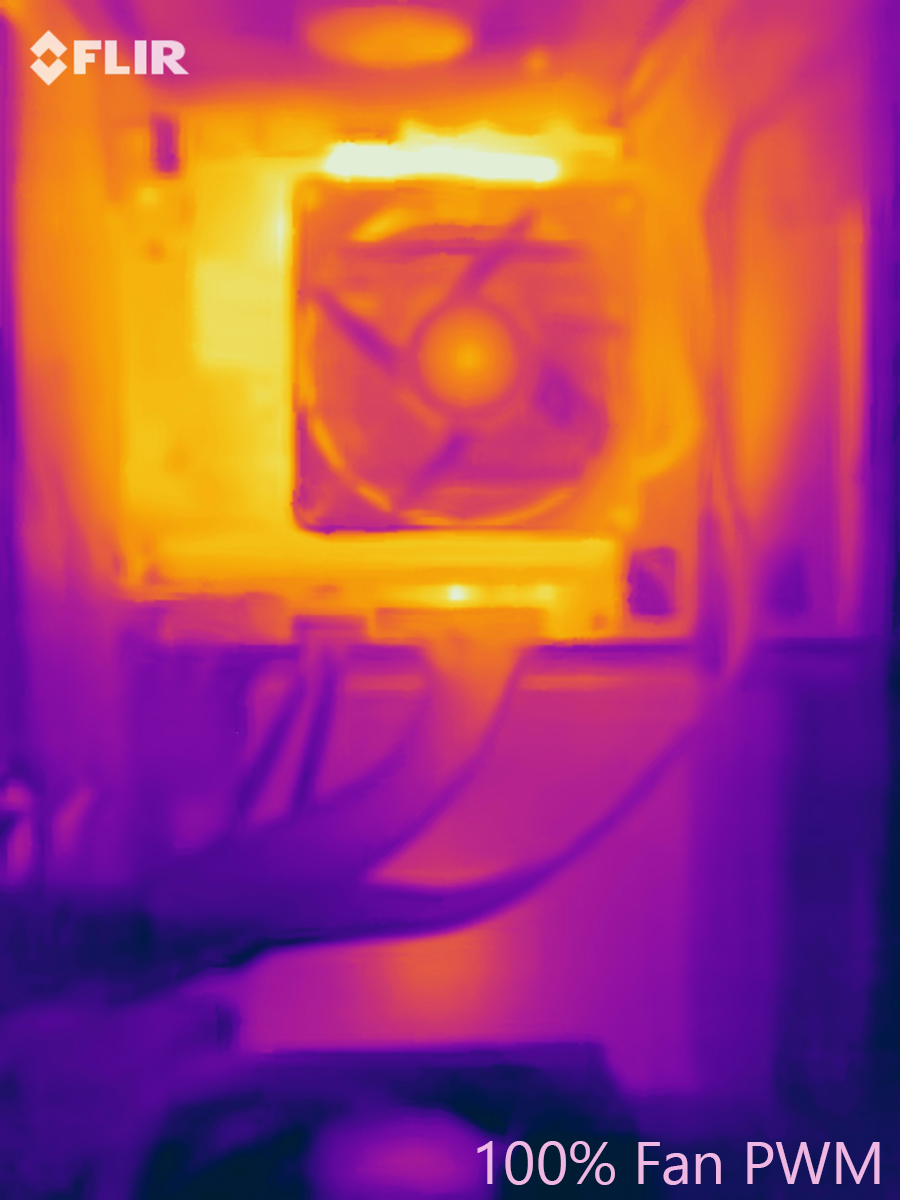
Thermal imaging from our FLIR ONE Pro camera shows minor differences between 50% and 100% fan PWM, but there are indications that 100% does show slightly lower temperatures throughout the center of the NH-L9x65’s mass. Meanwhile, there are also some barely noticeable temperature differences around the top and right side of the images, as well.
Get Tom's Hardware's best news and in-depth reviews, straight to your inbox.
Conclusion
Interestingly enough, the NH-L9x65 performs just outside of the realm of the Cooler Master ML120L and NZXT Kraken 22 120mm AIOs, as well as the 120mm Scythe Choten. However, for less money ($55), the NH-L9x65 makes a solid debate for being good value relative to its performance, and then there’s the added benefit of being far more compatible with ultra-compact systems.
The Noctua NH-L9x65 isn’t the game-changer that the larger NH-D15 has been, but there’s an argument to be made that there are times when ultra-compact coolers with a focus on compatibility should also feature elegant design. That’s what Noctua was aiming for here, and it largely succeeds. If you’re after a premium cooler for a very compact gaming PC or you want to add some Noctua engineering to your compact home theater desktop, this cooler is well worth considering.

Garrett Carver is a contributor for Tom’s Hardware, primarily covering thermal compound comparisons and CPU cooling reviews; both air and liquid, including multiple variations of each.
-
MasterZoen I used this in a ITX build for a friend, but Noctua changed their compatibility listings a year later and claim it's no longer suitable for the CPU in his rig, an i5-4690K . I'm curious as to how the cooler compares to a 120 AIO like the Corsair H60.Reply -
agello24 i have been a fan of TH for years. i STILL dont understand their graphs for cpu coolers. why not post the temp vs this over ambient temp stuff? the max fan temp is 49 over ambient, but 50% is 36. i dont get this.Reply
